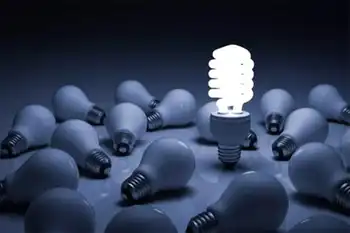Texas Committed to Deregulation
DALLAS -- - The deregulated electricity market in Texas can be successful beyond its first year of operation with minor adjustments to state law, executives and regulators said.
When retail competition began in the state just about a year ago, Enron had just declared bankruptcy and the aftereffects of the California debacle were palpable. But regulators and legislators there were committed, promising more competition and lower rates. Like any industry that has ever gone through restructuring, the process has been rough.
By-and-large, however, it is working, says the Texas Public Service Commission: About 320,000 residential customers, or 6.5 per cent, of the eligible 5.3 million ratepayers have switched providers and saved on average $6 to $14 a month. Meanwhile 80,000 small business and large commercial enterprises have changed suppliers. Those customers who have remained with incumbents have saved $900 million in 2002, because of six-percent mandatory rate cuts and a decline in the cost of underlying fuels used to power generators. About 13 different providers are active in the state.
"What I look for as a measure of success is a continuing trend line," says Rebecca Klein, chairwoman of the Texas Public Utility Commission. "I'm not looking for a spike or a double-digit figure today; rather, I would like to see the switch rate trend upward over the course of time. Competition is here to stay and it's not an experiment."
Deregulation allows retail consumers in Texas to choose their so-called retail electric provider (REP), which purchases its power from competing generators. Transmission and distribution is still provided by the local utility. To help customers shop, the REPS are required to provide standardized information related to pricing, contract terms and emission levels.
Tough Scrutiny
Texas began restructuring its wholesale electricity business in 1995, which has led to an abundance of power. Reserve margins this past summer were 34 per cent and even with plants that have been mothballed and with new construction canceled, that number is expected to be 14 per cent in 2007 -- still above the recommended 12.5 percent margin. All together, 48 new power plants have been added since 1995, which has brought the state's total generating capacity to 85,000 megawatts.
Unlike California, the regulatory framework did not require utilities to divest of their generation and then to buy power on the volatile spot market. By being able to purchase long-term power contracts, utilities have locked in prices. And the state is continually working to resolve constraint points along the grid so that the electricity market there can remain vibrant.
Until markets settle, state regulators are convinced that the establishment of a "price to beat" that requires incumbents to cut their rates by six percent is necessary. It keeps a lid on prices while at the same time allowing utilities to raise or lower their rates up to twice a year if the cost of fuel varies. REPs have decried the artificial price cuts as anti-competitive but have vowed to top the deals that incumbents offer.
"Our company's growth during its first year of operation clearly demonstrates that Texas businesses were ready for deregulation and eager to experience the positive benefits of competition," says Scott Hart, president of Texas Commercial Energy, a REP. The snafus with the system can be worked out, he told Texas legislators recently. He cautioned against any type of "retrenchment."
Deregulation there has at times been tested. About one percent of customers have received erroneous bills. Congestion along the wires has been higher than expected. And, wholesale prices have been volatile. It's all led to more consumer complaints and worked to solidify the status of incumbents.
According to the public utility commission, Texans have filed more than 8,500 complaints this year. That's compared to nearly 2,100 last year. About 38 per cent were billing related while five per cent were for deceptive trade practices and 12 percent were for slamming, or switching customers over without their consent.
"New market entrants have used high-pressure door-to-door sales to acquire market share," says Randy Chapman, director of the Texas Legal Center in testimony before a Texas panel of state legislators. "The promises made during the sales pitch are often deceptive, if not outright lies."
While newcomers struggle to gain a footing, incumbents appear safe. Such companies as TXU Corp. and Reliant Energy still control 90 per cent of their home turfs. It's still too early to tell how the market will shake out, but Reliant has said that that three to five major companies will control most of it with several niche players surviving too. That's a sign of a fruitful marketplace, the company says, noting that similar dynamics are present in most industries.
Meanwhile, critics of deregulation maintain that lower fuel costs are mainly responsible for the reduction in prices. Moreover, a rate increase approved earlier in the year by the Texas PUC has all but wiped out the mandated six per cent rate cut, they say.
Fundamental Design
The stumbling blocks, however, are to be expected with any industry that goes through a fundamental restructuring. Chairwoman Klein is committed to deregulation and says that its success depends on arming consumers with knowledge as well as more aggressive market oversight -- not rolling the clock back.
Along those lines, she is calling for an increase in the cap on penalties that can be levied against companies. Right now, the fine for a single infraction is $5,000, although Klein says that $25,000 would give the state agency more tools to protect consumers. At the same time, the agency has beefed up its consumer complaint division.
She furthermore says that the agency has worked hard to assure that anyone who wants to switch will not be delayed or prevented by an intransigent incumbent. All such transactions are conducted through the Electric Reliability Council of Texas, which manages about 85 per cent of the state's transmission grid. It doesn't just act as an independent clearinghouse but also as a cop to ensure no conflicts of interests.
Inevitably, prices will go up and down. Deregulation does not guarantee lower rates than otherwise -- only that people will pay the market price for their power. It is the job of the regulators to limit market disturbances. To get to that point, they must assure that the barriers to entry are knocked down and that consumers won't get swindled in the process. If competition is firmly rooted, customers will have the opportunity to choose a provider that has better prices or superior services.
"We have been able to get all the building blocks in synch," says Klein. "That is where competition succeeds or fails."
Texas, clearly, will not be another California. Still, the threshold it must surpass is far greater. In essence, the marketplace there must thrive. Its deliberate approach to restructuring appears to be working. If it proves a resounding success, it may inspire other states to go forth.
Related News

France Demonstrates the Role of Nuclear Power Plants
FRANCE - In recent months, France has showcased the critical role that nuclear power plants can play in an energy transition, offering valuable lessons for Germany and other countries grappling with their own energy challenges. As Europe continues to navigate its path towards a sustainable and reliable energy system, France's experience with nuclear energy underscores its potential benefits and the complexities involved in leveraging this technology effectively.
France, a long-time proponent of nuclear energy, generates about 70% of its electricity from nuclear power, making it one of the most nuclear-dependent countries in the world. This high reliance on nuclear energy…




